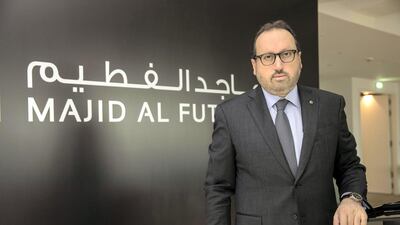Majid Al Futtaim, the shopping mall operator and retail and leisure conglomerate, is optimistic about the economic outlook for 2019 as technology drives its business and it stays open to opportunities for acquisitions, its chief executive said.
The economic situation in the UAE is expected to improve this year, said Alain Bejjani in Davos, where he was attending the World Economic Forum’s Annual Meeting last week.
“I’m looking forward for the second half of 2019 to actually start to see improvements with Expo nearing in the UAE, with a lot of macro-economic headwinds being dealt with, with all of the efforts that the government – either federal, Abu Dhabi or Dubai – has been putting in place for stimulus,” he said.
The IMF forecasts the rate of growth for the Emirates to be 2.9 per cent and 3.7 per cent in 2018 and 2019, respectively.
“I think 2019 will see an improvement. There are a lot of challenges, there are a lot of headwinds, we’re not out of the woods but I have an optimistic outlook,” Mr Bejjani said.
The MAF head said there is also the potential for acquisitions but did not specify beyond that.
“In every market there are opportunities [for acquisitions] and this is definitely something that people will continue to look out to. There are always great opportunities that emerge out of the most unexpected situations,” he said
MAF’s venture capital arm, which is a backer of technology start-ups such as FinTech firm Beam and e-commerce company Wadi, is likely to be active deal-wise this year
“We’ve done some very interesting investments that are great additions to our ecosystem and we continue to look at enriching additions and additions that actually make a difference and that you can integrate in our ecosystem,” he said.
In Davos, the company announced it had partnered with the Los Angeles firm of music artist will.i.am, to deploy its AI-powered conversational and contextual voice assistant technology, called Omega, at its retail outlets, starting with Dubai.
“We really have to leverage technology that is available to us. Every business, to continue to be relevant has to evolve and embrace change and has to embrace trends. We have to give the customers what the customers want. We also have to be more effective and efficient in order for us to be more relevant,” he said.
The arrival of AI in shopping malls and retail outlets would not be the start of humans being replaced in stores, however. The company is focusing on increasing the “effectiveness and efficiency” of how people are utilised in its retail outlets because they remain “the essence of the customer experience”.
“I think the human element has never been as important as it is today because the role the human plays cannot be replaced. The job that the human can do could be replaced by a machine but the role that you play is extremely important,” he said.
Overall, Majid Al Futtaim is combining the physical and digital as it transforms its business “front end and back end”, thanks to technology.
“Everything is being digitised inside out and everything is being powered by technology. So actually there is technology and there is digital. Technology allows us to do today a lot of things that we would never have thought possible; this is a blessing. This also improves our offline capabilities, our brick-and-mortar capabilities, our physical capabilities. It also powers our digital capabilities. So technology is an enabler for both dimensions.”
Its operations are collecting huge amounts of data every hour of every day. Harnessing this data for more effective decision-making is key, said Mr Bejjani.
MAF owns and operates 24 shopping malls, including Dubai’s Mall of the Emirates, 13 hotels and has developed four mixed-use communities in the region. It is also the holder of the Carrefour franchise across the Middle East, Africa and Asia, and runs more than 243 outlets in 14 countries.
“We see ourselves as a lifestyle business. What we offer to the customer in our part of the world is actually a model lifestyle that everyone aspires to, that everyone wants, that is purposeful,” said Mr Bejjani.
Would that lifestyle-centric approach eventually mean that MAF could move into sectors such as education or healthcare, where it already has potential partnership opportunities with Mediclinic?
“Lifestyle means a lot of things to different people and we are moving into businesses, some of them we have announced, some we haven’t yet announced,” he said.

